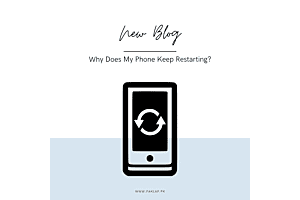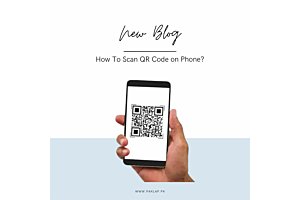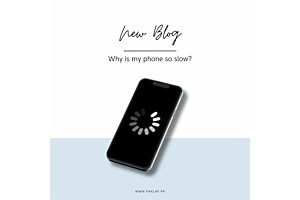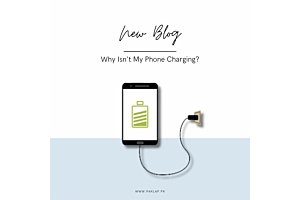iOS vs Android: A head to head comparison
There are some important differences that you should consider before buying your next smartphone. At the end of the day, the platform you choose does depend on your personal preferences. This article will split everything up into categories, and give you a winner for each. Based on what you are looking for, you can formulate a very personalized recommendation based on the winner from each category.
Affordability
Apple has always been at the high-end in terms of pricing. Some may say it’s obvious as to why, but Apple took it to the next level with the iPhone X, which started at around 1,000 USD. The iPhone 11 Pro Max starts at 1,100 USD, and the iPhone SE is the cheapest option at 400 USD. You might find cheaper iPhones, but only on the second-hand market.
Android is untouchable in this category. In terms of scale and variety, Apple does not come close. You can find an Android phone anywhere from a 100 USD price tag up to 1,500 USD. There is a gigantic selection of smartphones from a wide variety of manufacturers that will leave you with options down to the last dollar (or Rupee) of your budget.
The options are endless, and Android has also been optimized to run on lower-end hardware. Considering that Android also leads the way in terms of how many free apps are available to you, for a budget-conscious person, Android does take home the prize.
Winner: Android
Apps
Here’s a quick look at the number of apps you’ll find on the Google Play Store, and the Apple
App Store:
- Android: 2.5 million apps
- iOS: 1.8 million apps
These numbers are not the best metric to determine which platform has “better” apps, because no one is going to use all 1.8 million or 2.5 million apps. The majority of users use a handful of apps, with the most popular ones being available on either platform. What may be free on the Play Store, may not be free on the App Store, and vice versa.
Traditionally, iOS has been the go-to platform for app developers, so you could expect new apps and app updates to be pushed on to iOS first. Both operating systems are continuously working on making their platforms safer and more secure to use, in terms of malicious app and spyware protection.
Even though the Play Store has a higher percentage of free apps, the best apps and games still land on iOS first and don’t always find themselves making their way on to the Play Store. A close match, but iOS crosses the finish line a hair’s length before Android.
Winner: iOS
App Stores
Neither Apple’s App Store nor Google’s Play Store is perfect. Overall, Apple’s App Store does a better job in terms of organizing the plethora of apps and providing personal recommendations while providing a much better browsing experience. Both stores provide features by which you can make purchases using your fingerprint, but the quirk with Android is that your phone must have a fingerprint sensor to support this feature.
The newer iPhones implement Face ID to verify purchases and app downloads. Play Store’s no-questions-asked refund policy within two hours of purchase beats Apple’s refund methods, but Apple is strict when it comes to what apps find their place on the App Store. Apple has better Quality.
.
Winner: iOS
Battery life and charging
One of the biggest complaints any smartphone user will make. Battery life is one of the most frequently discussed topics amongst smartphone users. The lack of common hardware between iOS and Android makes comparisons difficult. iOS is optimized to squeeze out as much juice as it can from every mAh of the battery, but some Android devices have batteries much larger than any iPhone, which also means it could outlast any iPhone.
Both Android and iOS let you see your usage, while only Android estimates how much battery life you have left. Both feature power-saving modes to preserve juice, but Android is more flexible, allowing you to customize how you want your device to save that power. Apple has also hopped on the fast-charging and wireless charging bandwagon.
A thing to remember is that most Android phones come with the fast charging adapter and cable in the box, but you have to buy it separately for an iOS device.
Winner: Android
Software updates
Apple offers consistent updates and security patches for iOS. To get the same experience on an Android, you will have to purchase a Google Pixel. When Google rolls out the latest Android software or even an update, manufacturers fiddle around with it first, applying their skins to it and adding that OEM touch to the software, so it provides a seamless experience with the hardware.
This takes time, and the numbers testify to the fact. 70% of iOS users are on the latest version of iOS, while only around 8% of Android users run the latest version. iOS does beat Android by a mile when it comes to bug fixes, security patches, and software updates.
Winner: iOS
Customizability
This is a category where Android has stolen the spotlight from day one, and rightfully so. It is very easy to customize your Android, from the screen layout to shortcuts and widgets. If you don’t like the user interface, you can install a launcher of your choice to change it entirely. iOS has limited support for widgets, but the freedom on an Android is unmatched.
Android also allows you to set up third-party apps as your default apps, which iOS does not give you the wiggle room to do. For unique and personalized user experience, Android is the way to go. Winner: Android
Security
You might not experience security threats on your Android phone unless you download APKs from the web or apps from a third-party app store. The truth is, Androids are more vulnerable, as it gives you the freedom to delve into the world of unregulated apps. Many OEMs have taken steps to ensure their version of Android is more secure than Google’s rendition, but these tweaks mean that updates take a while to get to you.
Speedy updates are all the more important in today’s world because breaches are becoming more and more serious. Considering that millions of Android users are not running the latest software, your Android is more vulnerable to breach. Apple has already solidified its place in the corporate world and has always been pushing for security.
The fact that Apple has a tight grip over what apps users have access to, and the frequency of updates and software patches makes the entire Apple ecosystem more secure by prioritizing user privacy. Apple also encrypts your messages within its apps allowing for users to rest assured that no one is peeking slyly into what they are saying and to whom.
Winner: iOS
There are pros and cons to both platforms, but what makes either platform worthy of using is what you are looking for. It is a confusing decision to make, but breaking things down into categories and seeing which is better will help you make an informed decision.
Find the best prices with lowest prices in Pakistan for all Latest Tech Gadgets at Paklap!





